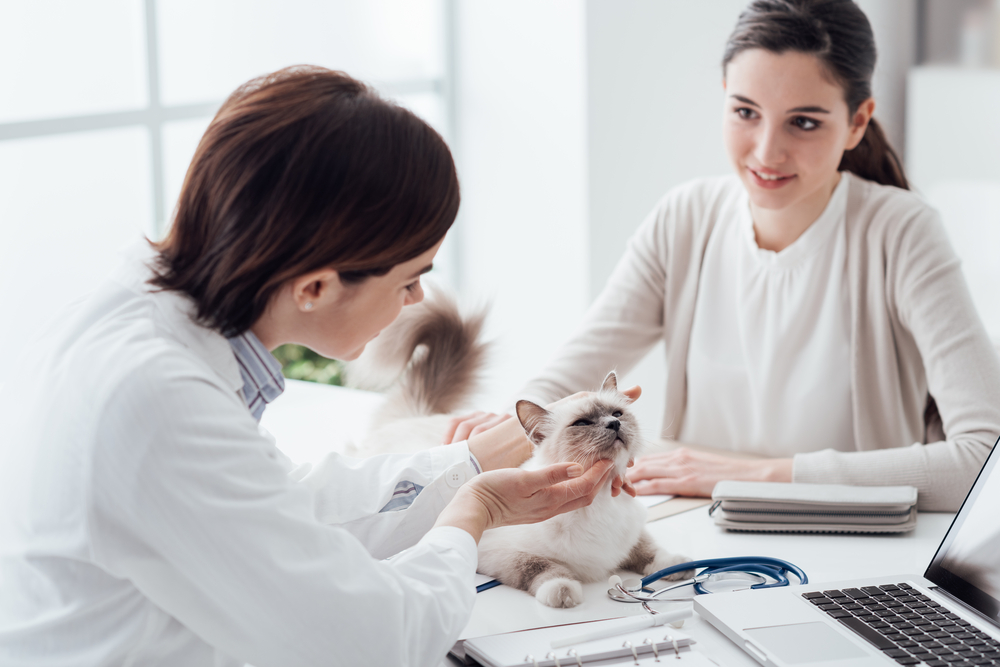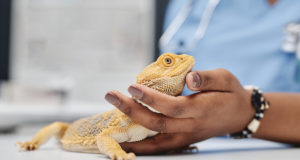Giving your pet medication can sometimes feel like a losing battle. Whether it’s a pill they refuse to swallow or a topical cream they try to lick off, the struggle is real! At Star of Texas Veterinary Hospital, we understand these challenges and are here to guide you. Our commitment to Fear Free care means we prioritize your pet’s comfort and well-being, making medication administration as stress-free as possible for both of you.
Understanding the Basics of Pet Medication
Every pet is unique, with their own personality and quirks. This makes medicating them different from simply taking medicine ourselves. Following your veterinarian’s instructions is crucial, not only for the medication’s effectiveness but also for your pet’s safety. Dosage, timing, and administration methods are all carefully determined to ensure the best possible outcome.
Tips for Making Medication Time Easier
- Consult Your Veterinarian
Before starting any new medication, always consult with your veterinarian. At Star of Texas Veterinary Hospital, we believe in personalized care. We take the time to understand your pet’s individual needs, any sensitivities they may have, and create a customizable exam and treatment plan that works best for them.
- Mastering the Art of the Pill
For many pet parents, giving pills can feel like the ultimate test. But don’t worry; we have some tried-and-true techniques! For dogs, try disguising the pill in a tasty treat or use a pill pocket designed to conceal medication. Cats can be a bit trickier, but gently placing the pill at the back of their tongue and then stroking their throat to encourage swallowing often does the trick.
- Liquid Medications: A Step-by-Step Guide
Liquid medications require a gentle touch and careful measurement. Using a syringe or dropper, gently hold your pet’s head steady and insert the syringe into the side of their mouth, between their cheek and teeth. Slowly release the medication into the mouth, giving them time to swallow. This helps prevent choking or spitting out the medicine.
- Applying Topical Treatments
Topical medications, such as creams, ointments, or spot-on treatments, should be applied directly to the skin as directed by your veterinarian. If the medication needs to be applied in an area they can easily lick off, consider using a cone or Elizabethan collar temporarily to prevent them from ingesting the medication. Always make sure to wash your hands after applying these topical medications.
- Injections: When and How
In some cases, injections may be necessary. If your veterinarian has determined that at-home injections are the best course of action, they will provide thorough instructions and training. Don’t hesitate to ask questions or express any concerns you might have.
Overcoming Medication Challenges
Resistance is Futile (and Stressful!)
It’s not uncommon for pets to resist medication. They might feel scared becaused they do not understand what’s happening. The experience can be stressful for both of you. At Star of Texas Veterinary Hospital, we practice Fear Free care, which focuses on reducing anxiety and creating a positive experience for your pet through positive reinforcement. This might involve using treats, praise, and gentle handling to make medication time more enjoyable.
Positive Reinforcement is Key
Positive reinforcement is a powerful tool. Rewarding your pet with treats, praise, or a favorite toy after they take their medication helps create a positive association. Over time, they may even begin to view medication time as a fun and rewarding experience.
Monitoring and Follow-Up
Staying Alert and Informed
Once your pet starts a new medication, it’s important to monitor their reaction closely. Keep a log of dosages, administration times, and any adverse effects you observe. If you notice any unusual behavior, changes in appetite, or any other concerning symptoms, contact your veterinarian right away to let them know.
Regular Checkups: Your Pet’s Best Defense

Regular checkups are crucial for maintaining your pet’s health. During these visits, your veterinarian can assess how your pet is responding to medication, make any necessary adjustments, and address any questions or concerns you may have.
Your Partner in Pet Care
At Star of Texas Veterinary Hospital, we believe that informed pet parents are the best advocates for their furry family members. By working together, we can ensure that your pet receives the best possible care in a compassionate and stress-free environment. Contact us today to schedule an appointment for a medication consultation or to discuss any concerns you may have. We’re here to help you navigate the world of pet medication and keep your beloved companion happy and healthy for years to come.




